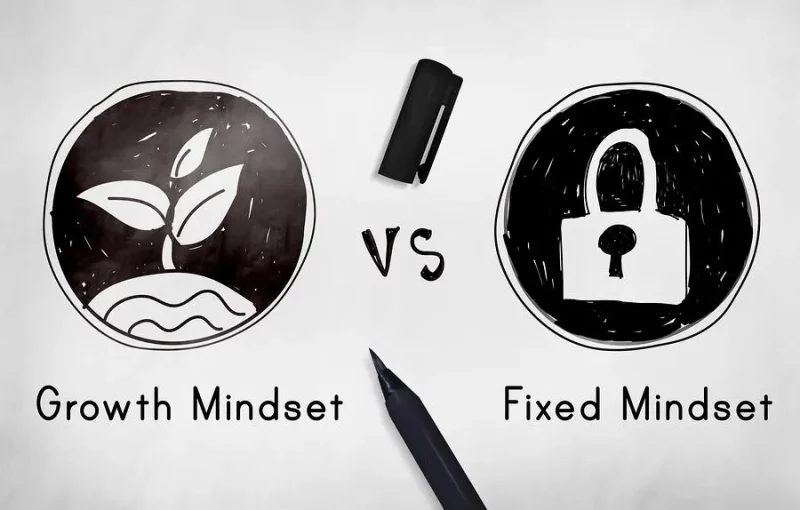Adopting a Mindset Change: From Fixed to Growth

People believe their basic qualities—like their intelligence or talent—are simply fixed traits when they possess a fixed mindset. They will document their intelligence or talent instead of developing them. They may also believe that talent alone creates success without effort. People in a fixed mindset believe you either are or aren’t good at something, based on your inherent nature, because it’s just who you are. The fixed mindset believes trouble is devastating. So, when you have any trouble, your mind tells you that you are no good at the activity you attempted and therefore should just quit and never try again.
On the other hand, people in a growth mindset believe anyone can be good at anything because your abilities are entirely due to your actions. In a growth mindset, people stress that their most basic abilities can be developed through dedication and hard work. Brains and talent are just the starting point. This view creates a love of learning and a resilience that is essential for great accomplishment. Virtually all great people have had these qualities.
Develop a Growth Mindset
Adopting a growth mindset means relishing opportunities for self-improvement. Learn more about how to fail well, by viewing mistakes as learning opportunities. Hiding from your weaknesses means you’ll never overcome them, so acknowledge and embrace imperfections. What works for one person may not work for you. Try different learning styles. Despite what schools may teach, there is no one singular model for learning. Investigate new learning strategies.
Making a mistake or falling short of a goal doesn’t mean you failed. Keep your outlook positive and replace the word failing with the word learning. You haven’t failed, so don’t quit. “Room for improvement” does not mean failure. Learn what you did wrong, correct it, and try again.
It’s the journey and not the destination, right? Teach yourself to value the process over the product. Don’t berate yourself if a subject or a skill you chose to learn about takes longer than you expected. Enjoy the learning for the sake of learning. Learning quickly doesn’t mean you’ve assimilated the information. Learning well sometimes requires allowing time for mistakes and ultimately, synthesis.
Learn from Your Mistakes
When those inevitable mistakes happen, allow them. Let yourself take risks in the company of others. Ignore the potential for embarrassment as it will make it easier to take risks in the future. Be aware that both activities are a little different—but know the relationship between learning and training your brain. Your brain is like a muscle that needs to be worked out, just like the body.
Never prioritize approval and accolades over learning. You’ll then only strive for that next reward instead of changing for your own sake. Realize that extra bit of determination will drive you to seek approval from yourself rather than others. That doesn’t mean you shouldn’t celebrate growth with others. If you truly appreciate your growth and change, you’ll want to share your progress with others.
Despite what IQ tests and the like may lead you to believe, genius requires hard work—not talent alone. And that hard work should always be acknowledged before inherent skill. Be aware you’re doing something smart, not just being smart.
Conclusion
Believe in the concept of constructive criticism even if you dislike the term. Remember that you’ll never be done learning. Just because the task or project ended doesn’t mean you must stop being interested in a subject. Constantly create new goals to keep yourself stimulated.
Create a sense of purpose for your growth and reflect upon your learning and how to use it at least once a day. It doesn’t have to be meditative but, allow yourself a thorough examination of your day and your processes. Keep the big picture in mind: that you want to focus on why you’re doing what you’re doing. Realize you are developing a growth mindset and let it continue to guide you throughout your career.
Forbes





